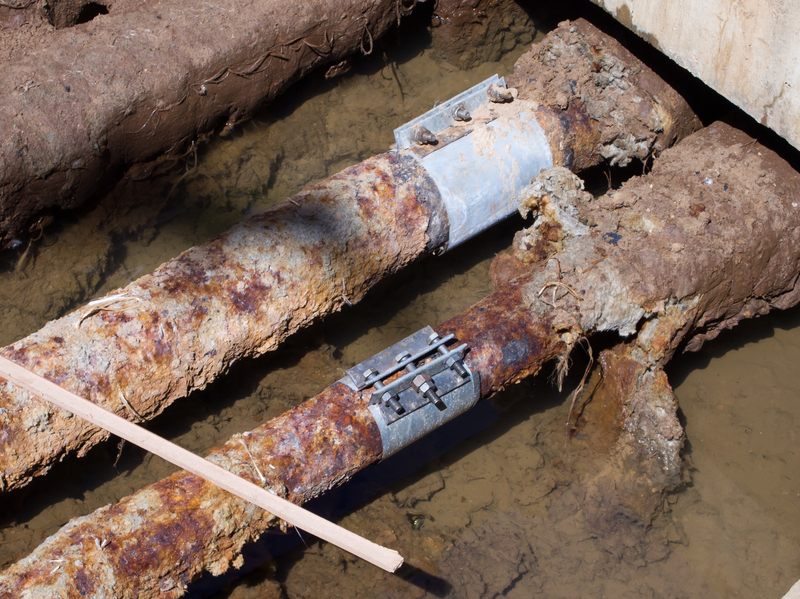Nevada Materials and Laws/Rules/Ethics 30 PDH Discount Package 1
Courses in this Package
Basement Insulation Basics (T03-006)
Corrosion Control for Aircraft (T09-001)
Lubricants and Hydraulic Fluids - Handling (T06-004)
Pre-Coating Surface Preparation (T02-003)
Structures and Properties of Metals (T07-001)
Engineering Laws, Rules, and Ethics for Nevada Professional Engineers (NV3-001)

This online engineering PDH course describes the good practices for insulating basements in new and existing homes.
There are many considerations to account for when making decisions about insulation. Costs, codes, energy efficiency, pest control, moisture management; the list goes on. Coupled with the large variety of insulation options including mineral fiber, mineral wool, foam boards, foam sprays, polyisocyanurate, etc., it is important to be aware of what options best suit a project’s particular conditions.
Codes are also constantly changing. While it is beyond the scope of this course to provide a comprehensive view of all basement insulation codes, it does discuss many common codes relevant to basement insulation projects, as well as changes to codes in recent years.
This 3 PDH online course is applicable to engineers, energy professionals and construction personnel who are interested in gaining a better understanding of basement insulation applications.
This PE continuing education course is intended to provide you with the following specific knowledge and skills:
- Understanding what considerations should be taken into account when looking at basement insulation options
- Familiarizing with the variety of insulation options
- Understanding the problems associated with the choice of insulation
- Familiarizing with codes which must be met for projects involving basement insulation
Upon successful completion of the quiz, print your Certificate of Completion instantly. (Note: if you are paying by check or money order, you will be able to print it after we receive your payment.) For your convenience, we will also email it to you. Please note that you can log in to your account at any time to access and print your Certificate of Completion.

This online engineering PDH course provides information regarding the identification and treatment of corrosive attack on aircraft structures and engine materials.
Corrosion is the electrochemical deterioration of a metal because of its chemical reaction with a surrounding environment. While the aerospace industry is continuously developing new and better materials, progress is offset partly by a more aggressive operational environment and by the complexity of the corrosion phenomenon, which can take many different forms. The resistance of aircraft materials to corrosion can drastically change with only a small environmental change.
This 9 PDH online course is applicable to material, industrial and mechanical engineers, as well as aircraft operators, maintenance and repair personnel in addition to all others seeking a better understanding of the basics of corrosion in aircrafts.
This PE continuing education course is intended to provide you with the following specific knowledge and skills:
- Familiarizing with the factors that cause corrosion
- Understanding the effects of corrosion
- Knowing which areas are prone to corrosion and the methods of prevention
- Learning the requirements for inspecting aircraft
- Learning corrosion removal techniques
Upon successful completion of the quiz, print your Certificate of Completion instantly. (Note: if you are paying by check or money order, you will be able to print it after we receive your payment.) For your convenience, we will also email it to you. Please note that you can log in to your account at any time to access and print your Certificate of Completion.

This online engineering PDH course describes the basic principles of lubricant additives, filtration, monitoring and sampling, and oil handling procedures.
This course is intended to be a practical guide to lubrication with enough technical detail to allow personnel to recognize and easily discern differences in performance properties specified in manufacturers' product literature so that the proper lubricant for a particular application is selected. In addition, this course discusses the considerations required to adequately maintain the integrity of the lubricants and ensure their effective performance.
This 6 PDH online course is applicable to engineers, design and construction personnel, and other technical professionals who are interested in gaining a better understanding of lubricants.
This PE continuing education course is intended to provide you with the following specific knowledge and skills:
- Familiarizing with the basic principles, classifications, and functions of lubricant additives
- Understanding the different filtration and separation processes
- Learning about the process of oil monitoring, system sampling, and testing
- Familiarizing with the essentials of oil storage, handling, disposal and safety considerations
Upon successful completion of the quiz, print your Certificate of Completion instantly. (Note: if you are paying by check or money order, you will be able to print it after we receive your payment.) For your convenience, we will also email it to you. Please note that you can log in to your account at any time to access and print your Certificate of Completion.

This online engineering PDH course describes surface preparation standards, common methods of surface preparation, and abrasive type and selection methods.
Surface preparation is the key factor in determining the success of a protective coating system. The equipment and techniques that can be used to achieve the desired surface cleanliness and roughness (profile) vary considerably. Traditional methods of surface preparation are now accompanied by new, innovative methods that have evolved mainly because of the issues surrounding the safe removal of lead-containing coatings from industrial structures. The ultimate objective of surface preparation is to create proper adhesion of a coating over an underlying substrate.
This 2 PDH online course is applicable to engineers, design and construction personnel, and other technical professionals who are interested in gaining a better understanding of surface preparation prior to coating applications.
This PE continuing education course is intended to provide you with the following specific knowledge and skills:
- Common methods of surface preparation
- Abrasive type and selection
- Surface preparation standards and specifications
In this professional engineering CEU course, you need to review Chapter 7 of the "Painting: New Construction and Maintenance" engineering manual, published by the United States Army of Corps of Engineers (USACE), Publication Number EM 1110-2-3400.
Upon successful completion of the quiz, print your Certificate of Completion instantly. (Note: if you are paying by check or money order, you will be able to print it after we receive your payment.) For your convenience, we will also email it to you. Please note that you can log in to your account at any time to access and print your Certificate of Completion.

The online engineering PDH course addresses two aspects of metals. The first part of this course deals with the basic structures of metals and how those structures are affected by various processes. In addition, it contains information on the various imperfections and defects that the metal may sustain and how they affect the metal. The second part contains information on metal properties which are considered when selecting material for engineering design purposes. Each of these properties contains a discussion on how the property is affected and the metal's application.
This 7 PDH online course is applicable to structural and mechanical engineers, construction and design personnel, technical staff and facility operators who are interested in gaining a better understanding of the structures and properties of metals.
This PE continuing education course is intended to provide you with the following specific knowledge and skills:
- Understanding bonding
- Learning about common lattice types
- Understanding grain structure and boundary
- Learning about polymorphism and alloys
- Knowing the imperfection in metals
- Learning about stress and strain and Young's
- Modulus Understanding stress-strain relationship
- Understanding the physical properties of materials
- Learning about working metals and corrosion
- Understanding hydrogen embrittlement
In this professional engineering CEU course, you need to review Modules 1 and 2, "Structures and Property of Metals" of the Department of Energy Publication DOE-HDBK-1017/1-93, "Material Science".
Upon successful completion of the quiz, print your Certificate of Completion instantly. (Note: if you are paying by check or money order, you will be able to print it after we receive your payment.) For your convenience, we will also email it to you. Please note that you can log in to your account at any time to access and print your Certificate of Completion.

This online engineering PDH course presents the laws and rules of ethics and professional responsibility governing the practice of engineering in the State of Nevada.
Excerpts from Chapter 625 of the Nevada Revised Statutes and the Nevada Administrative Code which relate to the rules of professional conduct, prohibited acts, as well as disciplinary and other pertinent regulatory provisions are presented in this course.
Engineering ethics is (1) the study of moral issues and decisions confronting individuals and organizations involved in engineering and (2) the study of related questions about moral conduct, character, ideals and relationships of peoples and organizations involved in technological development (Martin and Schinzinger, Ethics in Engineering).
Since engineers are faced with frequent moral and ethical dilemmas while practicing their engineering profession, this course will provide engineers with moral and ethical guidance in their decision making process. Most importantly, it will provide engineers with insight on how to conduct, respect and protect their engineering practice with the utmost professionalism.
This 3 PDH online course is applicable to Professional Engineers licensed in the State of Nevada who are required to demonstrate continuing professional competency in the Nevada Laws, Rules and Ethics as a condition of license renewal. For each renewal period, every licensee must complete thirty (30) professional development hours, at least two (2) of the 30 hours must be in professional ethics and one (1) of the 30 hours must be in the laws and rules regulating the practice of engineering in the State of Nevada.
This PE continuing education engineering course is intended to provide you with the following specific knowledge and skills:
- Familiarizing with the laws and rules regulating the practice of engineering in the State of Nevada
- Learning about engineering ethics, and the laws and rules of professional conduct and responsibility
- Understanding the role of the Nevada Board and its disciplinary authority
- Gaining an overview of ethical and disciplinary case studies and the corresponding penalties imposed by the Nevada Board
Upon successful completion of the quiz, print your Certificate of Completion instantly. (Note: if you are paying by check or money order, you will be able to print it after we receive your payment.) For your convenience, we will also email it to you. Please note that you can log in to your account at any time to access and print your Certificate of Completion.